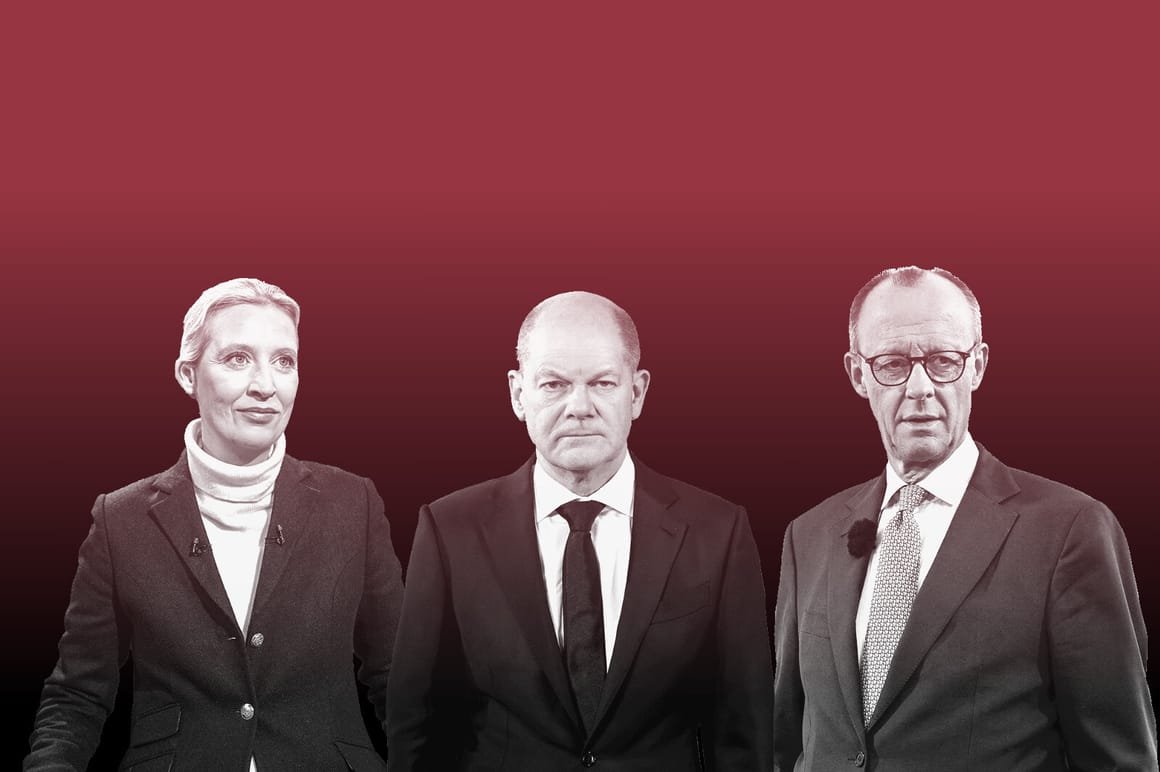
As Germany heads to the polls today, the country finds itself at a critical political crossroads. The center-right Christian Democratic Union (CDU), led by Friedrich Merz, is projected to secure victory, while the far-right Alternative for Germany (AfD) aims for a historic result.
Election Overview
Key Details
- Election Date: February 23, 2025
- Main Contenders:
- CDU/CSU – Center-right, led by Friedrich Merz
- AfD – Far-right populist party, led by Alice Weidel
- SPD – Center-left party, led by Chancellor Olaf Scholz
- Greens – Environmental party, led by Annalena Baerbock and Robert Habeck
- FDP – Pro-market liberal party
- Die Linke – Far-left party
- BSW (Sahra Wagenknecht Alliance) – New leftist party
Latest Polls and Projections
Recent polls indicate the following party standings:
- CDU/CSU – 30%
- AfD – 20%
- SPD – 15%
- Greens – 13%
- Die Linke – 7%
- FDP and BSW – Around 5% each
These numbers point to a highly fragmented Bundestag, making coalition negotiations challenging. CDU/CSU may need to form a coalition with multiple parties to secure a majority. Meanwhile, mainstream parties continue to rule out any cooperation with AfD.
Key Issues Shaping the Election
1. Migration and Asylum Policies
A wave of violent incidents linked to migrants has intensified debates on border security and immigration laws. Friedrich Merz has strongly advocated for stricter border controls, a move that has sparked both support and controversy.
2. Economic Concerns and “Debt Brake” Debate
Germany’s economy is struggling with slow growth and financial stagnation. Businesses, particularly in the automotive and renewable energy sectors, have expressed concerns. Additionally, the “debt brake”, a constitutional rule restricting government deficits, has come under scrutiny as political leaders debate potential economic reforms.
3. Rising Political Polarization
The surge of new and fringe parties, such as AfD and BSW, reflects increasing public discontent with traditional politics. This trend is leading to greater political fragmentation, making coalition-building more difficult.
Potential Coalition Scenarios
Given the current poll standings, several coalition possibilities could emerge:
- CDU/CSU and SPD – A “grand coalition” bringing together Germany’s two largest traditional parties.
- CDU/CSU and Greens – A centrist coalition balancing conservative and environmental policies.
- Three-Way Coalition – A CDU/CSU-led coalition involving SPD and Greens or replacing SPD with FDP.
The final government structure will depend on vote counts and coalition negotiations, which could take weeks or even months to finalize.
Voter Turnout and Election Integrity
A high voter turnout is expected, emphasizing the election’s significance. Authorities have increased security measures following recent political tensions and protests. Additionally, efforts to combat misinformation and maintain election integrity have been strengthened.
Live Election Updates
- 8:00 AM – Polling stations open across the country.
- 12:00 PM – Steady voter turnout reported; no major incidents.
- 6:00 PM – Polling stations close; exit poll results expected soon.
Stay tuned for real-time updates as the situation develops.
FAQs – Key Election Questions Answered
Q: What happens if no party secures a majority?
A: Parties will engage in coalition talks to form a government. This process can take weeks or even months.
Q: Why won’t other parties work with AfD?
A: Due to AfD’s far-right stance and controversial policies, all major parties have ruled out forming a coalition with them.
Q: What is the “debt brake”?
A: A constitutional rule that limits Germany’s government deficit, preventing excessive debt accumulation.
Q: Who is Friedrich Merz?
A: The CDU leader, known for his conservative economic policies and previous corporate experience.
Q: Why was this snap election called?
A: The collapse of Chancellor Olaf Scholz’s three-party coalition in November 2024 led to early elections.
We encourage readers to share their thoughts in the comments below and follow live updates as results come in.





